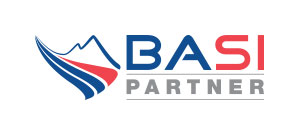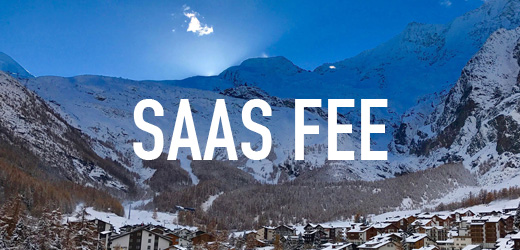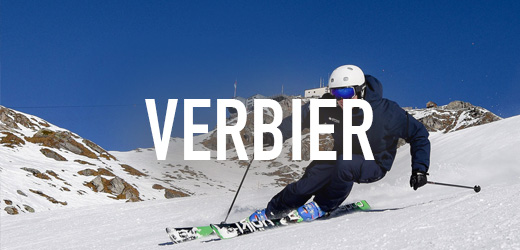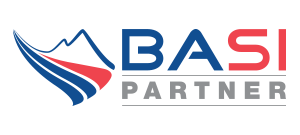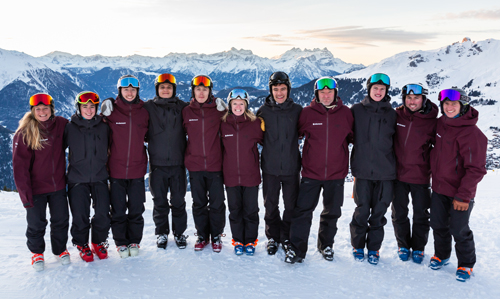VERBIER 2020 2021 – A CRAZY SEASON
THE STORY OF THE SEASON IN VERBIER…
We’ve reached the end of the winter and it’s safe to say that whilst we expected things to be strange, this season was a roller-coaster ride from start to finish…
But the great news is that despite the pandemic’s grip tightening over the winter months, the Swiss authorities and the lift company did an amazing job of keeping lifts running and (most importantly) keeping skiers safe.
On that note, one of the positives that came from the season was the Swiss study that confirmed what we all believed – skiing itself has no impact on increasing the infection rate of Covid and simple steps can make it even safer.
Of course, many things that are connected with skiing could increase the rates – bars, restaurants and travel as well as enclosed lifts and lift queues.
But with simple, effective policies in place we didn’t see skiing create any kind of shift in the general rate of Covid. When there were any increases in cases of Covid in Verbier they were almost always from people not following the rules.
Lifts had reduced capacity, we had socially distanced lift queues and reduced capacity in bars and restaurants (as well as closures). This all meant skiing was able to continue even if the normal après-ski experience had to be put on ice for a season.
HOW IT STARTED
We were looking forward to winter having had the previous season cut short when the pandemic hit.
So we were planning for a different season but we were optimistic that the new safety measures and reducing rates would make sure Verbier kept rolling and trainees could train, work and have a great season.
As a result we had a brilliant team of trainees arrive in late November ready to ski.
We got things underway as usual and our team of top qualified coaches began to put them through their paces, and introduce them to the theory and technical requirements of ski teaching.
In no time we were ready for the Level 1 exam…

THE NEW STRAIN AND A NEW DEAL
However just before Christmas things changed significantly.
As our trainees were busy passing their BASI Level 1 exams news came in that a new variant had been found in the UK.
It didn’t directly effect the course in Verbier but suddenly it looked like boarder closers would create problems for the Christmas and new Year influx of clients for ski schools – and put a big question mark over our January course arrivals.
But that wasn’t the only news – in the UK the new Brexit deal was announced and it was going to end freedom of movement of workers. This was a big reveal for the tourism industry and even for us in Switzerland (which is outside the EU).
The Swiss work permits have always been offered to UK citizens because they were also EU citizens. Take away that EU membership and without a replacement agreement any new Swiss work permits were not available to British instructors.
You can read more about the knock-on effects on permits here and there are reasons to be optimistic going forward, but in the short term it meant our trainees wouldn’t be able to work once they finished the course.
TRAINING (ALMOST) AS NORMAL
Undeterred by this news, the team kept training and put in a great deal of effort on the hill. After all the work after the course is the icing on the cake – the qualifications were the main focus.
We drafted in extra coaches and we were delighted to have BASI examiners James Duffield and Rupert Goldring join the team to coach the trainees.
They were a brilliant addition to our already strong coaching team, and were an instant hit with the trainees.
Another new curve-ball that arrived was in the shape of controls on group numbers.
We had been allowed to ski in groups of up to ten, but suddenly a rule was announced in Switzerland that ‘sports groups’ could only be a maximum of five including the coach. Although the limit for outdoor gatherings was higher and you could have ten people indoors in your home if you wanted…
We were disappointed but as you can imagine the restrictions were non-negotiable (even though it seemed to make little sense for skiing).
So the coaches broke their groups into ‘pods’ of three and four and they became masters of alternating between pods and keeping everyone active and progressing – juggling the trainees and the groups all day.
We actually saw many trainees make more progress during these weeks than they’d been making in more normal coaching sessions, but it wasn’t quite business as usual and thankfully the ‘rule-of-five’ was lifted and we were able to return to more inclusive groups
The coaches were not unhappy to see the end of the enforced pods…
BUSY COURSES
After the November course was underway we were inundated with enquiries for the January and February courses.
With many trainees cancelling courses in France, Canada and Austria with other companies, as well as people deciding to leave university and take a different qualification.
So the January and February courses began to grow – but with such a strong team of BASI 4 coaches we were easily able to run extra groups without compromising on the high quality coaching that everyone receives on a Peak Leaders course.
TRAVEL AND COVID

With the new travel issues we looked at how the January courses could go ahead.
Due to the range of travel rules in different countries the simple solution we came to was to split the course between two countries.
We would start with off-snow training in France and then progress to on-snow work in Switzerland.
This meant that we would follow all the British and French and Swiss rules but trainees could travel and start their course – education was a recognised exception for travel and (despite people not realising this) BASI ski instructor qualifications are a recognised international vocational qualifications as well as providing credits that are recognised as modules in certain universities.
This lack of knowledge meant that we had a few incidents with trainees trying to enter France where boarder control assumed that anyone carrying skis was off on a holiday and not off to take vocational exams.
Needless to say it was unwelcome stress, but everyone tried again (with even more paperwork) and were able to travel successfully.
After all that the off-snow training was about to start in France when a trainees told us he felt a little ill. We were concerned – although everyone had travelled with a negative PCR test.
The trainee was immediately tested and we put the course into precautionary lockdown. When the result was positive we contacted the health authorities and all trainees went into isolation.
The quarantine period was tough – after all, quarantine is tough for anyone, but in a strange country it was tougher. We even had tabloid press trying to get into the trainees’ quarantine apartments.
But everyone responded brilliantly and we had great support from the hotel staff and the French health authorities as well as the British Consulate.
You can read a little more about this here to see how it unfolded.
Crucially we urged the journalists (and occasionally the politicians) who commented on the situation to deal in facts – we followed the guidelines of all the nations to the letter and none of them had the slightest issue with the course, our response to the positive case or the overall course plan.
The end result was that we safely transferred all trainees to Switzerland after the isolation was over and everyone tested negative. Then it was time to get cracking with the training…
A HUNDRED NEW SKI INSTRUCTORS
After that everyone could concentrate on enjoying the great conditions and working towards exams – once again we saw a huge amount of effort from trainees.
But it was certainly a difficult and unusual season.
So we want to thank all the trainees, coaches and behind-the-scenes staff for making it such a success.
We had some our best pass-rates ever this season and despite the restrictions it was an absolute pleasure skiing with the guys on the course.
So as we look forward to next winter, we hope that the impressive vaccination programme in Switzerland makes skiing even safer here, and we can’t wait to welcome trainees to Verbier once again to have the experience of a lifetime.

